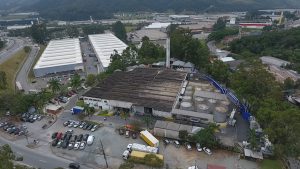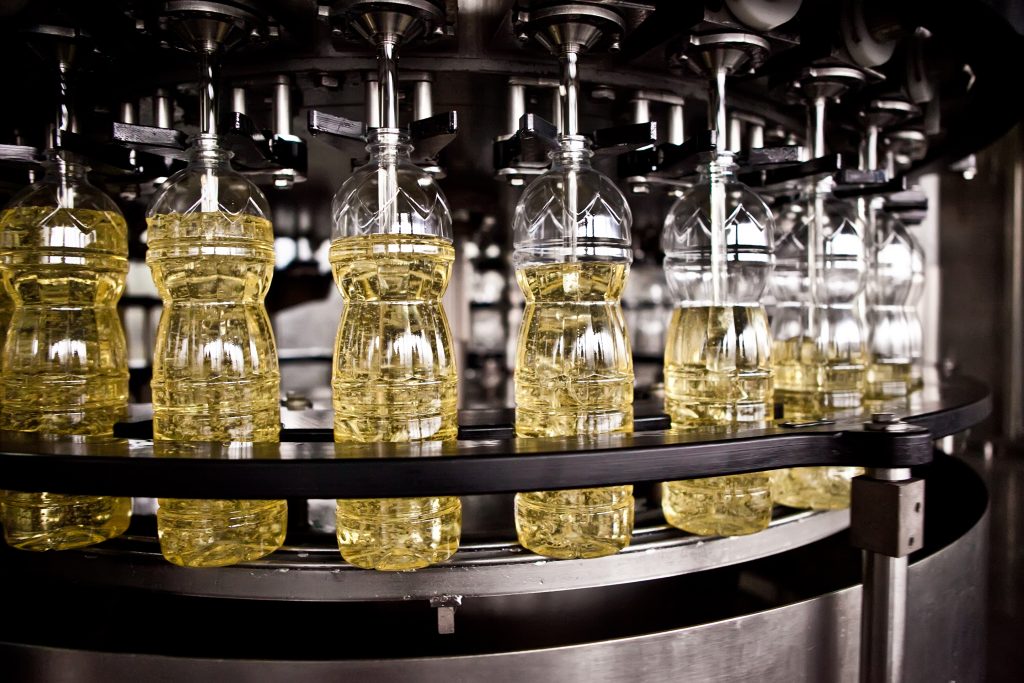Sâo Paulo – The Brazilian arm of Germany’s lubricant manufacturer Fuchs, in Barueri, São Paulo, got its halal certification in February. Now, its local plant may supply food-grade lubricants to Brazilian food manufacturing companies that export to Islamic markets. The certification was issued by the Federation of Muslim Associations in Brazil (Fambras Halal).
Halal certification attests that goods comply with the guidelines of Islamic religion, which include a ban on pork and alcohol, various traceability requirements, raw material composition, storage and handling during production.
Fuchs’ product lines include food and beverage industry lubricants, which are also employed in making animal nutrition products, cosmetics and pharmaceuticals. These lubricants are used in machines such as compressors and bearing devices, and any pieces of equipment that might incidentally come into contact with the food. They are used in processing of export products including orange juice, soy, beef and poultry, soft drinks, biscuits, breads, etc.
In an interview with ANBA, Fuchs food-grade products specialist Lílian Miakawa said halal certification sheds new light on the company plant’s products and processes. “The label has fostered our holistic vision, providing the whole process with an even greater a sense of strictness and thoroughness. Now, we have a more robust competitive edge, by embracing new practices, streamlining processes and increasing our staff’s skills,” she argued.

Demand for halal lubricant tends to go up across food industry supply chains. The newly certified Brazilian plant joins the ranks of four other Fuchs facilities, in Germany, (two plants), United States and South Africa, from where Fuchs Brazil used to source its halal lubricants before the Barueri plant got certified.
In order to become halal certified, the company fine-tuned its processes to match requirements, ranging from raw material procurement and storage to construction of dedicated facilities for production, transportation and storage of food-grade lubricants. Fuchs already boasts certifications including ISO 9001 and ISO 21469, which underpin the halal certification process.
This is a quality and safety guarantee that the entire food industry supplier chain will not come into contact with ingredients not permitted by Islamic religion, and that there will be no cross-contamination in lubricant manufacturing, raw material handling, storage, transportation and the finished product, she said. “These are necessary guarantees to the end buyers of food and beverage items, which is made to provide attestation that their product is halal,” she explained.
Miakawa said improvements in control and internal processes, training and other investments have yielded a quality system that’s more robust, fast and reliable. “Halal certification is yet another step in our journey of improvements and good practices, in a bid to make Fuchs synonymous with excellence in lubricant production and supply,” she said.
Halal market
According to the specialist, halal guidelines are not exclusively tied to religion. “Demand for halal certified goods is going up among non-Muslims, as a safer way to get healthy, quality food, or else as a lifestyle choice,” said Miakawa.
According to press material from Fuchs, the Islamic economy currently accounts for 10% of the world’s Gross Domestic Product (GDP), and being a major food producing and exporting country, Brazil has a great opportunity to leverage its business. “This scenario translates into a big potential not only in foods, but also the supply chains of other industries, such as pharmaceuticals, toiletries, cosmetics and agribusiness, which also rely on food-grade lubricants. This creates an opportunity to strengthen the Brazilian industry,” she explained.
Brazil is the premier food supplier to the Organisation of Islamic Cooperation (OIC), and food and beverage industry majors already supply that market. This goes to show that demand for halal food-grade lubricants tends to pick up and become ever more central to industry supply chains.
Another driver of the relevance of halal certification is the fact that the Islamic population around the world grows much faster than those of other religions. The Islamic market consumes the most food of all global markets. There are 1.8 billion Muslims in the world, and an expected 2.2 billion by 2030 according to this year’s State of the Global Islamic Economy report.
“Since a dedicated network of suppliers is yet to be put in place, the industry is undergoing changes. The trend is towards the creation of exclusive brands, new halal food research centers, and new dedicated manufacturing hubs,” said Miakawa.
Translated by Gabriel Pomerancblum




